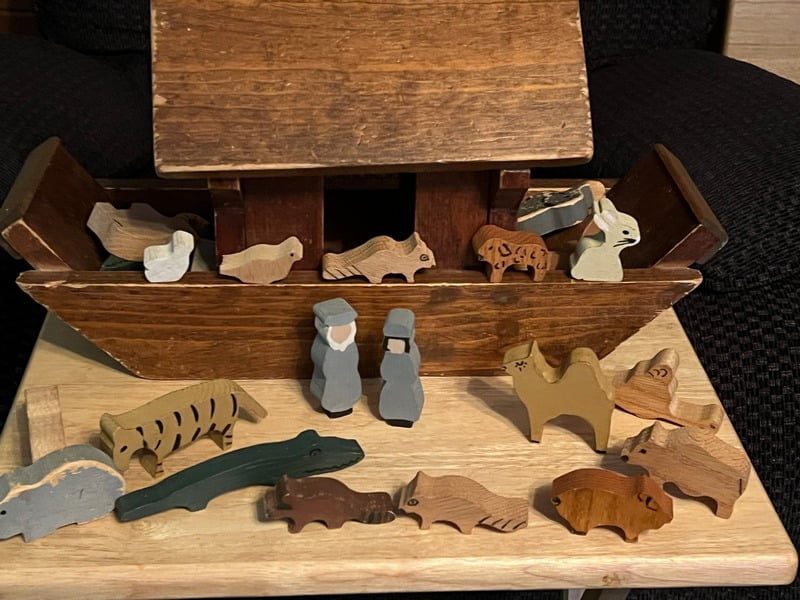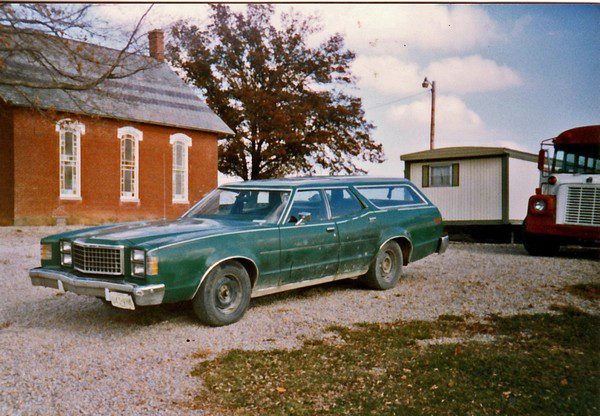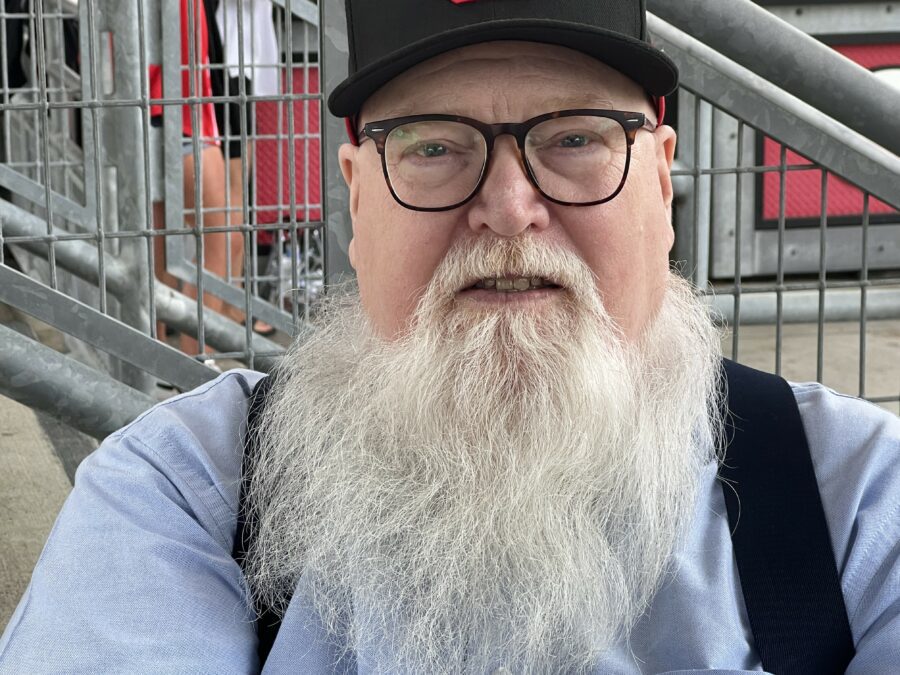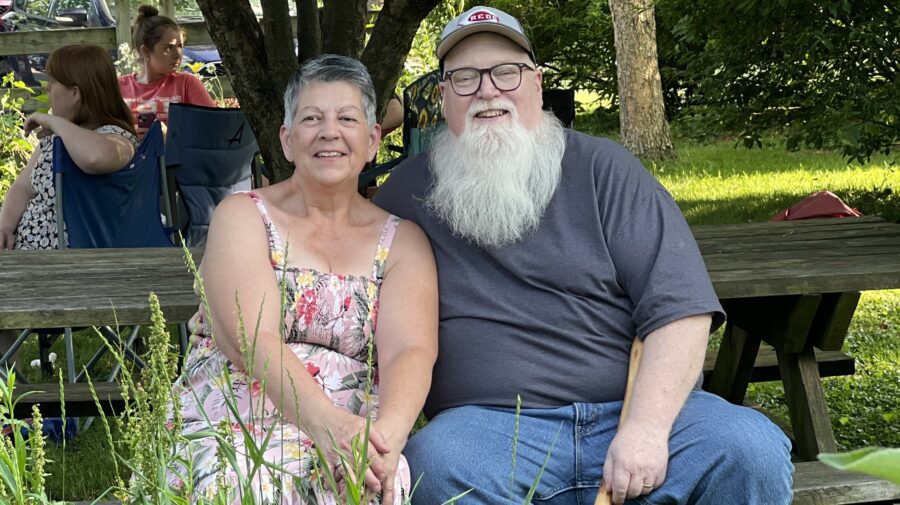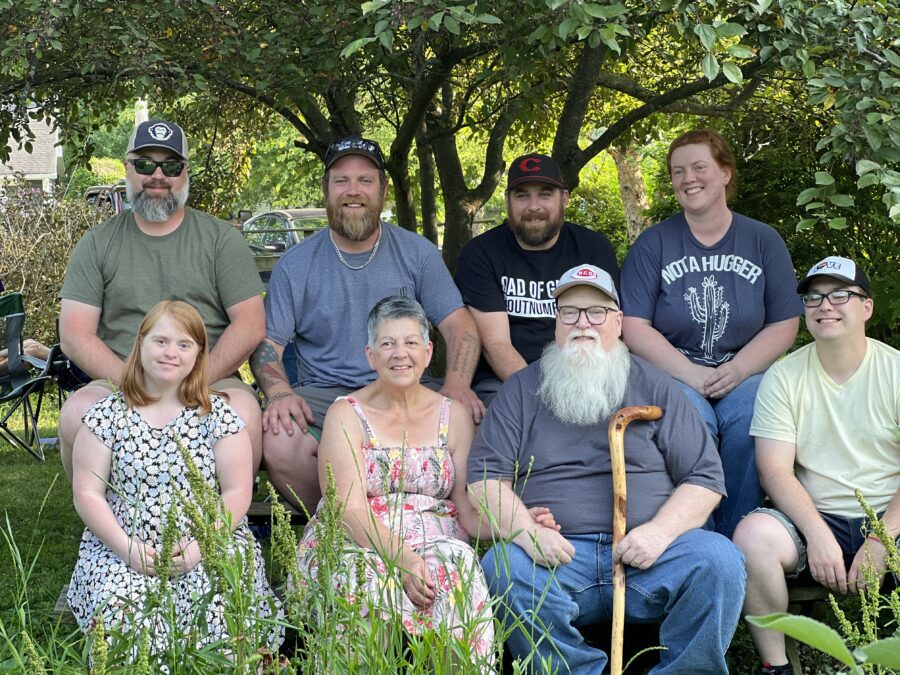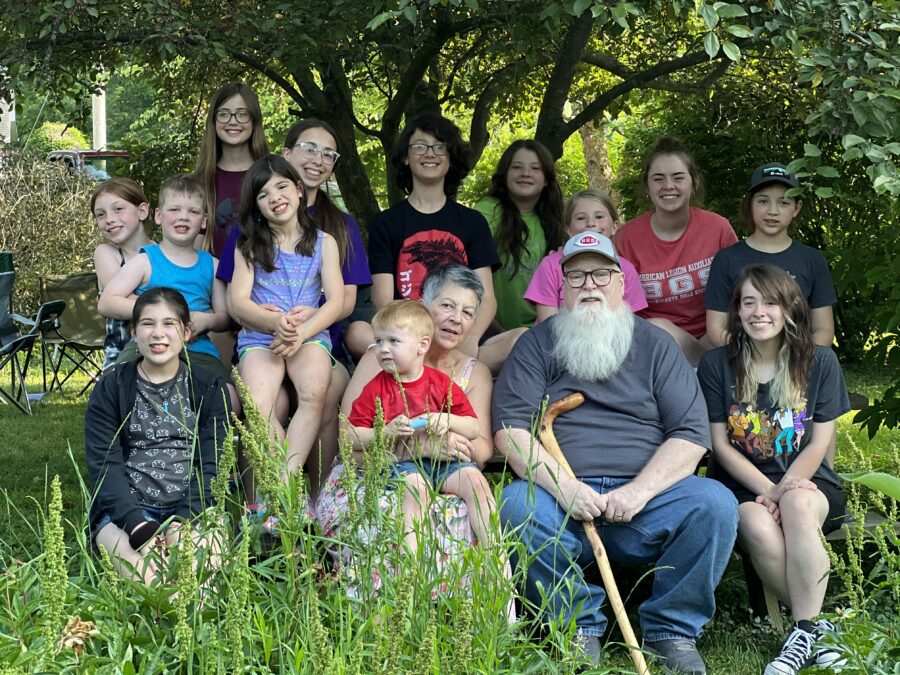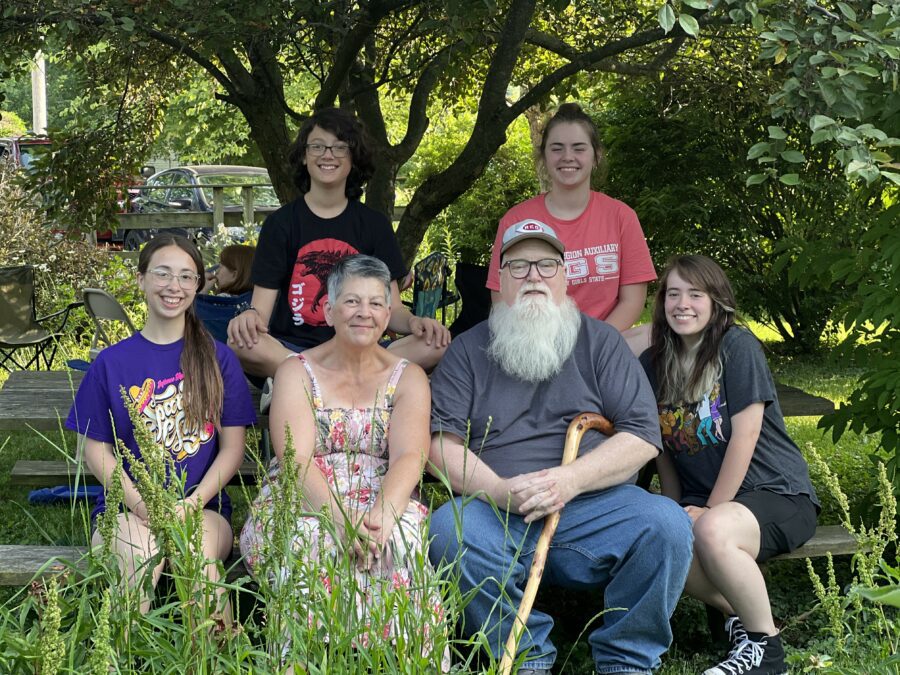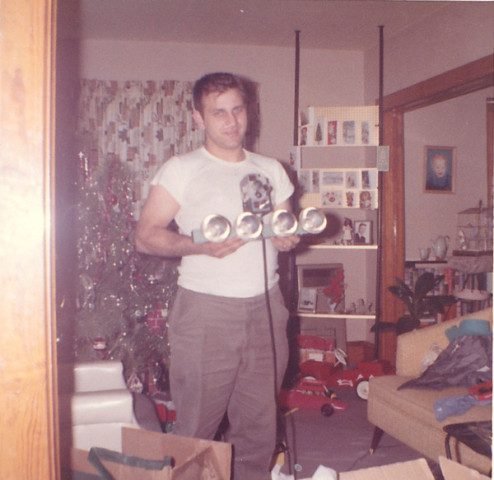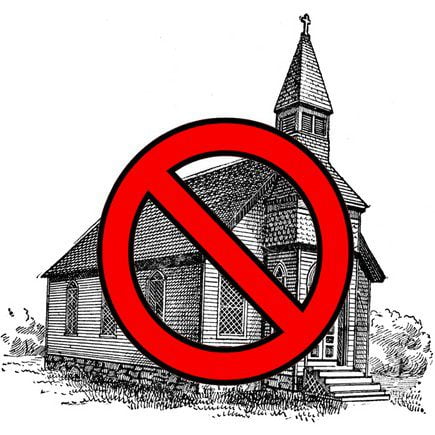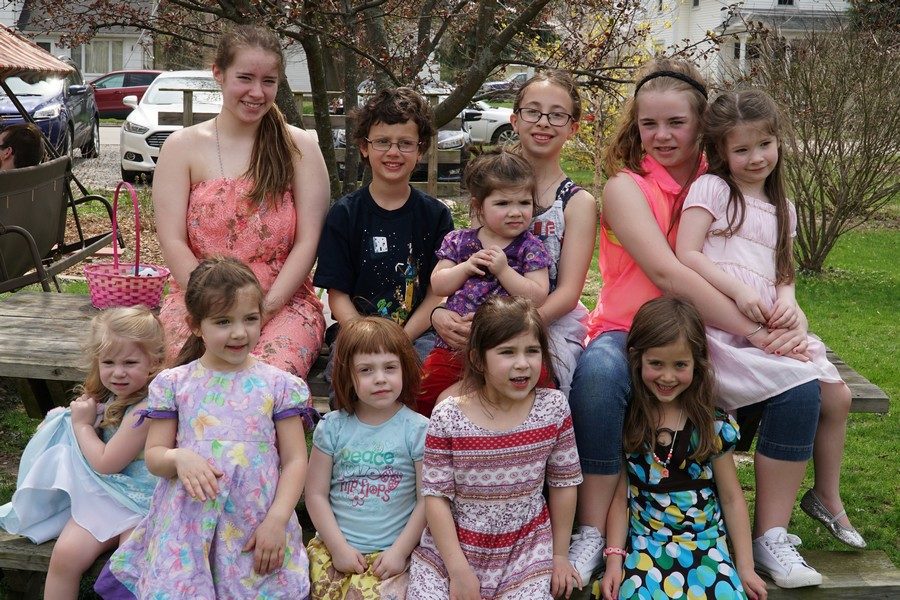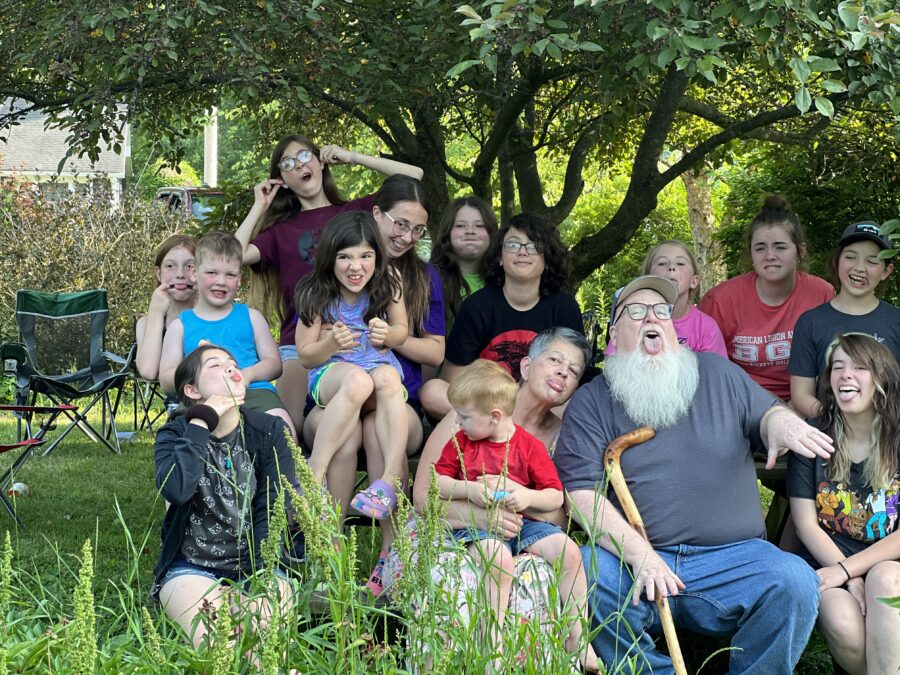
Yesterday, I saw a neurosurgeon affiliated with ProMedica in Toledo, Ohio. Over the past three years, I have been dealing with increasing pain in my neck and spine. MRIs revealed numerous herniated discs, arthritis, and other structural deficiencies. While these scans didn’t do anything to help with my pain and debility, they did provide reasons for my suffering.
Three or four months ago, I started having severe pain in my lower back. An MRI two weeks ago — which I had to pay for myself since my insurance company refused to approve the test — revealed that I have disc problems in my lower back too, along with a Tarlov cyst in the sacrum area of my back. From neck to tailbone, my spine is a mess. And it is likely that my disc problems are congenital. Gotta love DNA. As things stand, I am unable to stand straight, or walk more than a few feet at a time, and I have lost bowel and bladder control. Just when I thought things were bad enough . . .
I found the surgeon to be personable, patient, and to the point — traits I admire in a doctor (besides being proficient and competent, of course). He told me that my problem was in the L4-L5 area of my spine. The damage is such that there is pressure on the nerves; the only fix is surgery. Not having surgery is not an option; that is, unless I want to be an incontinent invalid for the rest of my short life.
That said, this 2-3 hour surgery is not without risk. The surgery has a 90 percent success rate, with a 2-3 percent mortality rate. Factor in the fact that I have several comorbidities, my concern about the outcome is warranted.
I have had problems with my lower back my entire adult life. I was 20 when I saw a doctor for the first time about my back, and since then I have seen other doctors who pointed out the narrow disc space in L4 and L5. My mother and father both had back surgery to “fix” low back problems — Dad in 1969, at age 33, and Mom in 1979, at age 43. Both of my siblings have had back surgery, with a varying degree of positive outcomes. My sister is facing more surgery on her neck. Several years ago, we had a friend — who has since died from COVID — who was left crippled and unable to work from low back surgery. It’s hard not to think about these people and their experiences when considering my own back surgery.
Today was my scheduled appointment with my therapist. We talked extensively about my pain, suffering, and prospective surgery. She said, “Bruce you have two choices. Either you have the surgery or you don’t. I replied, “Actually, I have three choices.” I can choose to have the surgery, not have the surgery, or end my life. “Oh, Bruce, that’s not a choice.” Sure it is. It is a choice that I always have as long I am in my right mind and have access to the means of my demise.
There are moments when I want to end my life. I am flat worn out from the constant pain and suffering. (And just because you see me in public smiling or interacting with my family doesn’t mean my pain has suddenly gone away. It hasn’t, and when you see me, I am likely gritting my teeth and crying inwardly as I try to enjoy life and my family as much as possible.) Currently, my pain levels are top-of-the-chart awful. I can, at best, take two or three steps before I feel biting pain in my back, hips, buttocks, hamstrings, and calves; so much so that it doubles me over and takes my breath away.
My therapist asked why I didn’t kill myself, probing for the reason or reasons why I still find life worth living. This question led to a lengthy discussion. My answer was short and to the point; one word, to be exact: FAMILY! The only reason I choose to press forward is Polly, our six children, and sixteen grandchildren. I am ready to die. I am flat worn out from the pain, incontinence, and lack of sleep. I am tired of my wheelchair, my cane, and the struggle to do simple things like taking a shower and brushing my teeth. This sort of life is not worth living, if not for my family.
So why don’t I kill myself?
First, I know what suicide does to those left behind. My mother’s repeated suicide attempts and successful bullet to the heart left deep, lasting scars on my psyche. I would never, ever want to do this to my family.
Second, Polly doesn’t know how to operate the TV or remote control. She needs me. 🙂 (I thought this dark post needed a bit of humor.)
I said to my therapist, “If my family was gathered together at my house and an asteroid hit our home, killing everyone but me, I would have no reason to live.” While it is unlikely that this will happen, my point was this: Family is the reason I get up in the morning. While I love writing and sundry other things, they are not enough to keep me among the living — though $1,000,000 in blog donations might change my mind. 🙂
In recent weeks, I have seen a grandson graduate from kindergarten, and two granddaughters graduate with honors from high school. On Sunday, I am taking my 6-year-old grandson to his first baseball game in Toledo. Two of my granddaughters will be spending the weekend with us, and on Friday, we are going out to eat and then to a baseball game in Fort Wayne with our oldest son and his family. “But, Bruce, what about your pain and other health problems?” Oh, they haven’t gone anywhere. When I do things such as those mentioned above, I take extra pain medication, hoping that will get me through the night. Regardless, I know pain and suffering is the price of admission, and I am willing to pay the price. One thing I know: when I am with family or when they stop by for a visit, I feel better. There are scientific reasons for why this is so, but all I know is that when I see them, I am given strength to push through to another day.
I am not trying to guilt my children into seeing me more often. I know they are busy with life, jobs, and responsibilities. All I am saying is that when I DO see my children, their spouses, and my grandchildren, it makes a difference when it comes to my will to live. I am grateful that I am not a sick, elderly old man whose family never makes time to see him. I always want to see my grandchildren more often, but I am glad that I see them as often as I do. Even when it hurts me to touch or hug them, I still want to see them. When one of my young grandsons runs into the living room to hug me and inadvertently smacks me in the nuts, I still want their hugs and silly words. If you haven’t figured it out yet, pain is not as much of a problem as loneliness is. For me — and I ONLY speak for myself — family matters. I know that may not be the case for some readers. Family can cause pain, and people rightly distance themselves from their families, choosing loneliness or other social connections instead.
As things stand, I plan to have surgery on August 19. I hope when I awake from anesthesia that the first faces I see will be family. If so, it will be another day worth living.
Bruce Gerencser, 68, lives in rural Northwest Ohio with his wife of 47 years. He and his wife have six grown children and sixteen grandchildren. Bruce pastored Evangelical churches for twenty-five years in Ohio, Texas, and Michigan. Bruce left the ministry in 2005, and in 2008 he left Christianity. Bruce is now a humanist and an atheist.
Your comments are welcome and appreciated. All first-time comments are moderated. Please read the commenting rules before commenting.
You can email Bruce via the Contact Form.

